Meet the Disaster Recovery Mentors
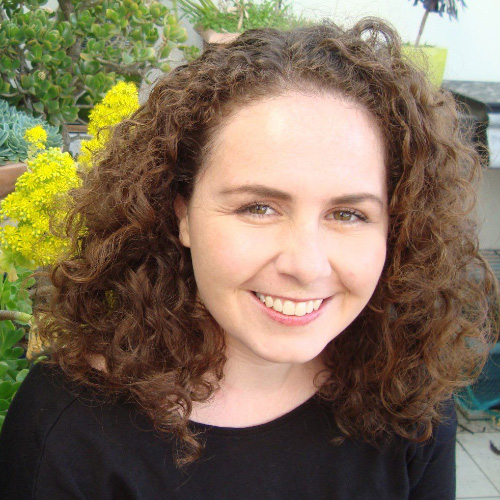 |
Kate Brady (VIC)
|
Dr. Kate Brady has had a distinguished career in disaster recovery operations, programming and research. Kate is the Senior Research Fellow for the UNSW HowWeSurvive initiative, is an Honorary Senior Research Fellow at the University of Melbourne and is the Technical Adviser to Australian Red Cross Emergency Services, where she established and led the disaster recovery program for 12 years.
Most of Kate’s work focuses on what people find helpful and unhelpful after disasters. Throughout her career, Kate has had significant influence on State and National emergency management policy and has an international profile in collective trauma, resilience and in disaster recovery programming and policy. Kate is a co-author on the Australian Disaster Recovery Framework, the Australian Community Recovery Handbook and was an advisor in the development of the National Disaster Mental Health Framework. In 2021, she became the host for ABC’s podcast ‘After the Disaster’.
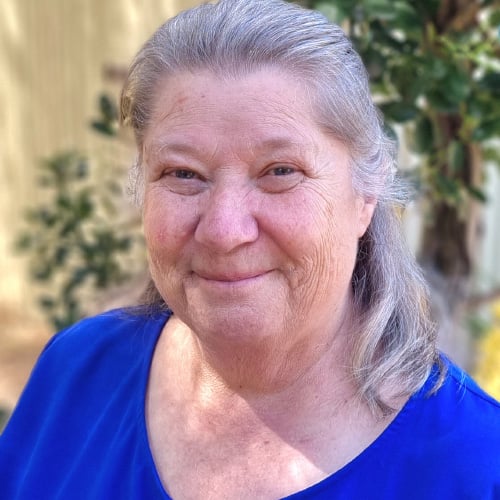 |
Glenda Carter (NSW)
|
Glenda Carter, like many other people, wears several hats. Firstly, a wife, then mother to three children and a grandmother to eight wonderful children. She has lived in NSW, QLD and SA and finally settled in rural NSW.
Glenda has a passion working with children as she lost a son to suicide and strongly believes in the need to teach children skills to help them cope with life challenges.
Over the years, Glenda’s family has run several businesses from Manufacturing, Hotelier, Transport and Restaurant owner and now she works for a non-profit organisation and loves her job everyday helping people with an array of challenges.
For many years now Glenda has work alongside our primary producers dealing with the ongoing issues surrounding drought, floods, and bushfires. This has seen her spend many hours over a cup of tea just listening to their stories.
After the 2019/2020 fires, Glenda packed the work car and spent several weeks travelling around the Riverina and Snowy Mountain areas helping people rebuild their lives by listening and providing information about support services.
Other trips have seen Glenda work in flood effected areas where she has visited the Hawkesbury region several times over the last few years and most recently working closer to home in the Riverina floods.
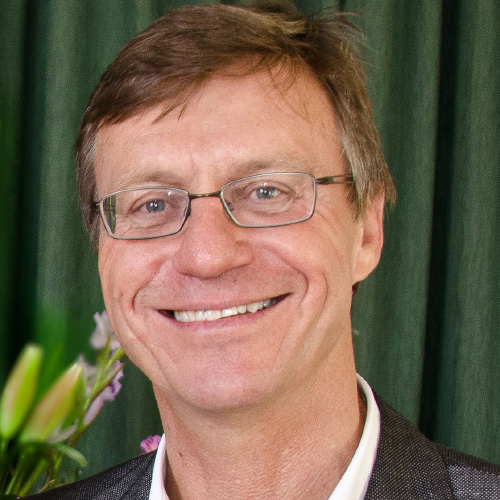 |
Mark Darby (NSW)
|
Mark Darby was born in Gundagai and grew up in rural and regional Australia. His professional background is primarily in education working for community, not-for-profit organisations and government at all levels. Mark’s original studies were in Parks and Recreation Management in California, near Paradise. He has taught at the University of Technology Sydney and also worked in international development through South and Central America and the South Pacific.
Mark and his wife lived through the Canberra 2003 bushfires and returned to live in Tathra six months before the 2018 fire. Mark was CEO of a not-for-profit organisation in Canberra, based in an office block in the middle of suburbia. The fire burned up to the back streets and singed the casuarinas and gums overhanging the office. It motivated him to scan 60 years of history and store our organisational records offsite.
Following the Tathra fire, Mark became a member of the Community Reference Group Executive. With the Chamber of Commerce, Council and Tourism network he developed a project funded by the NSW Office of Emergency Management that supported the recovery and future preparedness of business, with a specific focus on tourism. It followed the recovery experience of 21 businesses over 18 months, along with the community.
Mark’s town doubles or triples in size during the peak tourist season. This is also usually the peak bushfire season. How do you prepare for that? How do you evacuate your customers?
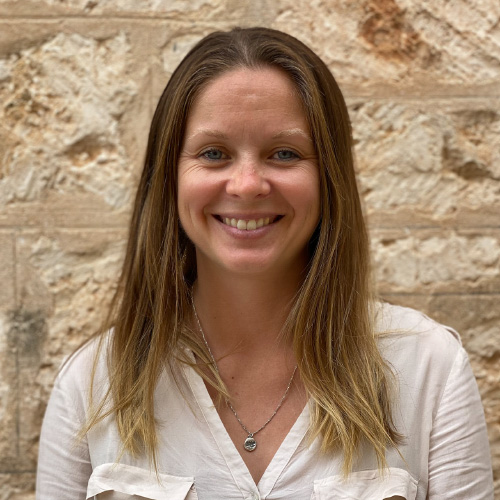 |
Sabrina Davis (SA)
|
Originally from Germany, Sabrina Davis moved to South Australia in 2009 following a one-year hiatus around the country exploring the land and working on cattle and sheep farms. Sabrina and her husband own and farm a sheep property on the remote western end of Kangaroo Island with their two young children. In the summer of 2019/2020, Sabrina’s community and her own property were severely devastated by the Black Summer fires, where two people died, over 80 homes were destroyed and thousands of farm and native animals were lost. After temporarily relocating to a new community, Sabrina became a citizen leader by organising community BBQs, and mental health conversations, creating a bushfire recovery documentary film and becoming the spokesperson for the local farm firefighters, all while rebuilding her farm and house.
Sabrina is an experienced interviewer and social researcher with the ability to capture and present change stories with an impact and successfully run fundraising campaigns and learning networks. She is the founder of the Humans of Kangaroo Island project and an award-winning copywriter and proofreader with a Bachelor in Public Relations, Marketing and Communication. Over the last three years, Sabrina has been recognised as a national leader in community disaster resilience, regularly re-connecting disaster-affected communities with a focus on mental health.
Sabrina has co-designed DisasterWISE, a Communities Learning Network, to help connect communities to learn from one another through the power of story and create positive change in community-led disaster recovery. In her Comms and Media role for the network, Sabrina connects with people from all around the world who want to better prepare their communities for disaster or share their knowledge from recovering from one. Sabrina is a mentor in the National Drought Mentoring Program within the Australian Rural Leadership Foundation and enjoys reading, cooking and beach walks. Her family loves travelling and having adventures around their farm and on the island.
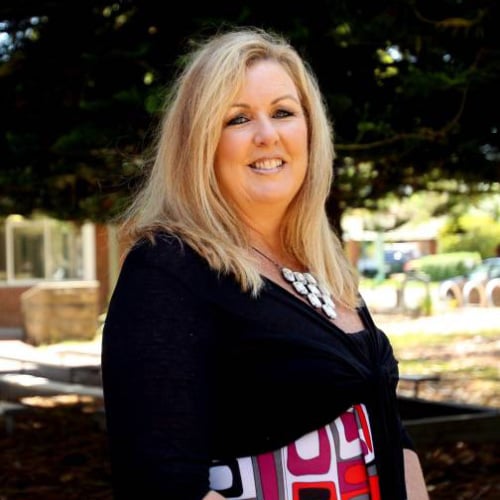 |
Jo Graham (NSW)
|
Jo Graham was born in Wollongong, before moving to Newcastle then Sydney. She is now married (to Noel) with two children – Georgia 26 and Sam 17 & two Labradors – Coco and Marlo. Jo was a teacher then principal for 39 years in high and low % multicultural schools. Jo loves what she does, her school, kids, staff, parents and community and loves people and would like to think she is making a difference.
Jo is also the Sydney Area rep for the NSW Primary Principal Aboriginal Education Reference group.
After the Kurnell tornado, Jo organised a staff and families ‘meet’ as soon as they were allowed as staff were distressed by not being able to see their students and families or offer help. Jo was part of the 13-month Recovery program in Kurnell and was part of the Kurnell Wellbeing Working Group, where she met once a month working with the Red Cross recovery team and local social and emergency services, providing advice and support, developing relationships and connections with key services. Jo also coordinated student, parent and staff support sessions with School Chaplain, School Counsellors, Storm Birds, and liaised with CBC and other local businesses, churches, charities who wanted to donate goods to residents and families.
As many of the families had missed out on Christmas, Jo assisted in the coordination of a Christmas in July event, and to celebrate our strength and resilience, assisted in the coordination of the One Year Anniversary event, with a variety of interactive and wellbeing workshops with community and emergency services at school.
Jo is empathetic and compassionate, and a good listener with a sense of humour. She may not have all the answers, but she is happy to ask questions and seek advice to help solve any problems, issues or concerns ... or point in the right direction.
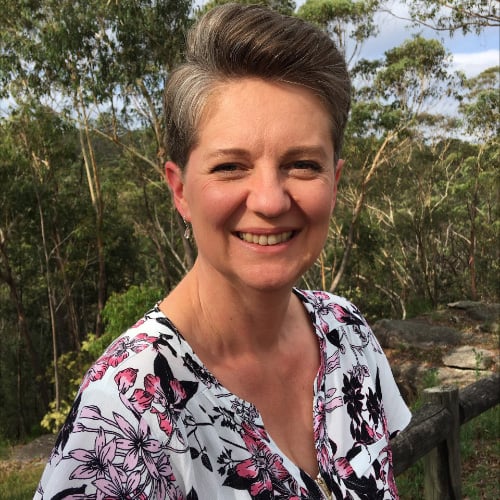 |
Tracey Greenaway (NSW)
|
Over the past 30 years, Tracey has been a Salvation Army Emergency Service volunteer where she has been involved in a variety of emergency events including the Glenbrook Train disaster, the Sydney hailstorm in 1999, as well as attending many fire events and evacuation centres.
During the 2013 Bushfires, over 200 homes were lost in Tracey’s hometown of Winmalee. Tracey subsequently took on the role of Recovery Team Leader, NSW Bushfires for The Salvation Army where for over 3 years she supported 996 households across NSW impacted by the bushfires. Throughout this time Tracey was also involved in the Blue Mountains Wellbeing Recovery Subcommittee, and the Resilience and Preparedness Group.
Tracey has also completed a virtual international placement with United Way of Hyderabad developing a playbook for 200 primary and high schools; and a plan for Telangana State teachers on India’s New Education policy. The playbook focused on post disaster psycho-social recovery; service delivery during lockdowns with no power or internet; and keeping girls in school.
In the 2019/2020 Black Summer bushfires, Tracey worked in response and recovery for The Salvation Army.
Prior to the first COVID lockdown, Tracey began working in the Hawkesbury as a Person-Centered Emergency Preparedness (P-CEP) facilitator for people with disability or chronic health conditions. After the 2021 Hawkesbury Floods, Tracey took up a Recovery Support Worker role with Peppercorn Recovery Support Services.
Since February 2022, Tracey has been employed as a Community Development Worker at Hawkesbury City Council working with rural, remote and isolated communities impacted by the 2019/2020 fires and/or numerous floods.
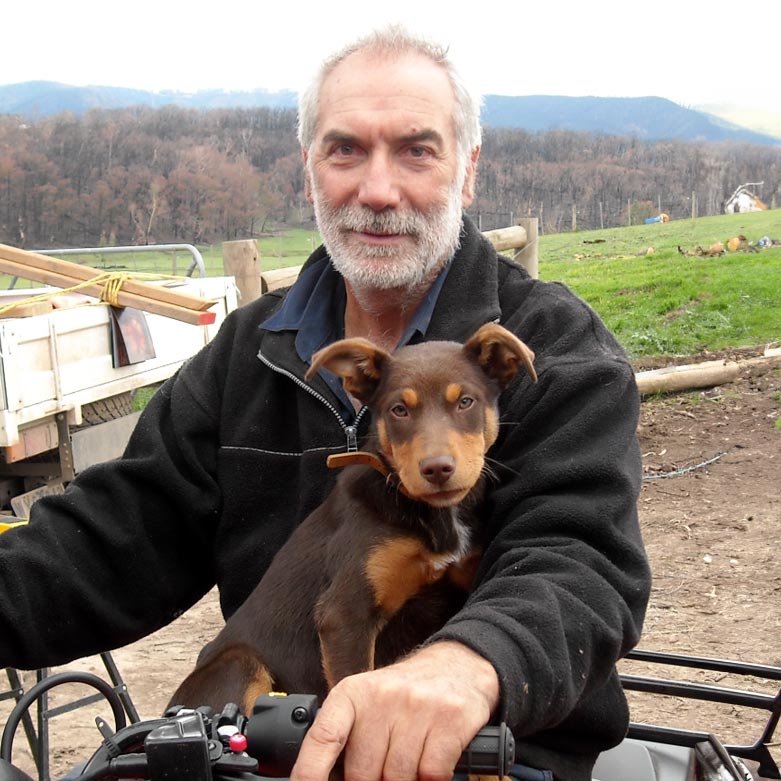 |
Malcolm Hackett (VIC)
|
Malcolm is a teacher and principal who retired in 2008 after 34 years service working in Victorian government secondary schools. He farms 600 acres north of Melbourne raising beef cattle and producing fodder for horses.
Malcolm and partner Diana lost their home and farm infrastructure in the 2009 Black Saturday Bushfire in Strathewen. Malcolm was elected chair of the Strathewen Bushfire Renewal Association which developed a democratic, community-led approach to recovery.
Malcolm is also involved in other broad based community initiatives as chair of a community company which operates five Bendigo Bank Community Bank Branches and as a director of Bushfire Resilience Incorporated which conducts free webinars and maintains a website of bushfire preparedness resources. Since 2020 Malcolm has worked as a mentor with the Sarsfield Community Association following their Black Summer disaster.
Malcolm brings to his mentoring role an understanding of bureaucracy and varied experience with managing complex organisations, building a respectful culture, creating sound governance, effective communications and community engagement. His experience with personal loss and community grief are a constant reminder that listening, sharing and collaborating are the foundations of a healthy recovery.
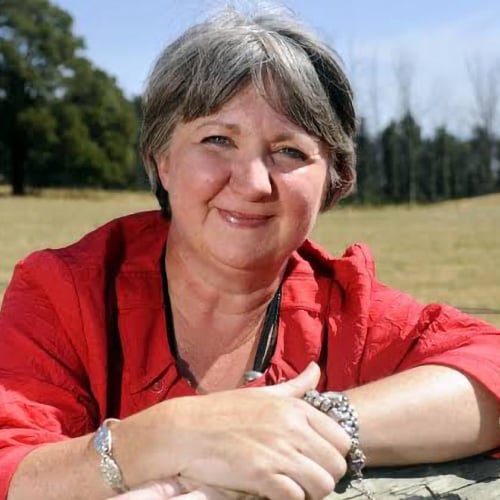 |
Anne Leadbeater (VIC)
|
Anne has 25 years’ experience in community and economic development through her roles in local and state Government, emergency management and adult education. Anne worked on behalf of Murrindindi Shire Council to coordinate recovery efforts for the Kinglake Ranges following the 2009 Victorian Bushfires and has also worked with disaster-impacted communities in Queensland, New South Wales, South Australia, Victoria and New Zealand. Anne’s extensive experience includes facilitation of state-wide consultation sessions with staff and stakeholders for the development of the Victorian Department of Land, Water and Planning Customer Charter, and design and delivery of a national tour of masterclasses on disaster recovery for the International Association for Public Participation Australasia (IAP2).
In 2018, Anne was lead writer on the development of Handbook 12 – Communities Responding to Disasters (Planning for Spontaneous Volunteers) and a review of Handbook 2 – Community Recovery for the Australian Institute of Disaster Resilience. Anne specialises in working with large and small groups on strategic planning, policy development, disaster recovery and managing outrage. She holds a masters’ degree in Social Science and has authored published papers on drought policy, communicating in emergencies, and the role of community leadership in disaster recovery. Anne has designed and delivered professional development training for recovery practitioners in all Australian jurisdictions and in New Zealand, and was a Core Values Awards judge for IAP2 in 2017 and 2019.
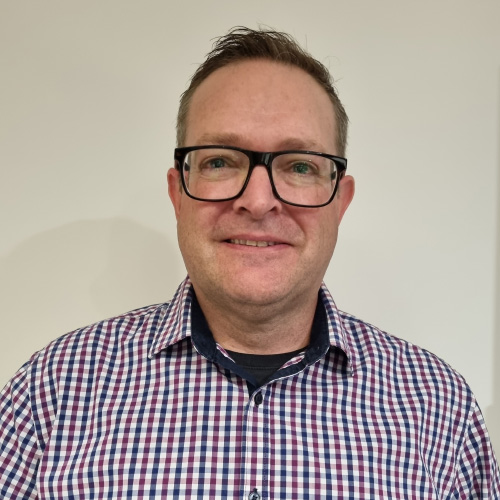 |
Daniel Long (NSW)
|
Daniel has worked for the Blue Mountains City Council (BMCC) for approximately 14 years and has dealt with a number of natural disasters and extreme weather events from an operational perspective during that period. These events include fires, windstorm, sand and snow.
Daniel’s current role with BMCC is as the Manager Open Space and Recreation. This current role and previous roles have seen Daniel engage with a wide range of stakeholders.
Daniel was also the Bushfire Recovery Manager for the Blue Mountains City Council following the October 2013 fires where approximately 200 homes were destroyed.
This role included developing a Recovery Action Plan in consultation with a range of stakeholders (both government and NGOs) and setting up a Local Community Reference Group and Local Community Recovery Steering Group.
In addition, the role provided oversight for the following groups:
- Social/Wellbeing Working Group
- Rebuild Working Group
- Economic Working Group
- Environment Working Group
The role also played a part in a debrief process for BMCC where they celebrated our successes and identified areas for improvement. This led to the creation of a Preparedness Toolkit for the organisation.
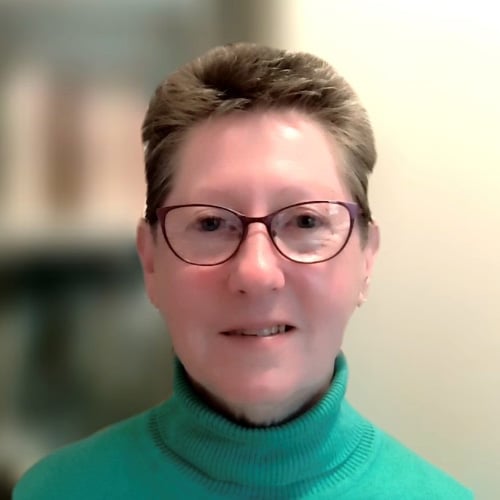 |
Kris Newton (NSW)
|
Kris has been the Manager at Mountains Community Resource Network (MCRN) since March 2012. MCRN is the peak body for the Community sector in the Blue Mountains. In this role, Kris convenes and supports a range of cross-sectoral interagencies and networks. MCRN advocates strongly for the critical need for community voices, and for the central role of locally-based community sector organisations & groups, in recovery.
Kris’s previous experiences include management of national not for profit peaks in Canberra for 10 years (including CEO, Horticulture Australia Council; CEO, Deafness Forum of Australia; Assistant Director, TAFE Directors Australia; Museums Australia). Prior to that, she ran her own consultancy firm (1990-2002); commonwealth public sector (in vocational education & training 1982-1990); secondary teaching for 8 years, and also volunteering roles (counsellor, professional supervision, management committee) with local community sector organisation (Parent Support Service) for 14 years.
Following the 2013 Blue Mountains bushfires, Kris Chaired the Wellbeing (Psychosocial) Recovery sub-committee, and again after the 2019-20 Black Summer fires –followed by floods and COVID.
Since 2013 Kris has also convened the Resilience & Preparedness (R&P) Group –now merged with Wellbeing to form the Recovery, Resilience & Preparedness (RR&P) Group. She is also a permanent Observer (representing the community sector) on the Blue Mountains Local Emergency Management Committee.
Kris’s formal qualifications include: BA; Dip. Ed.; Dip. Psychology (Counselling).
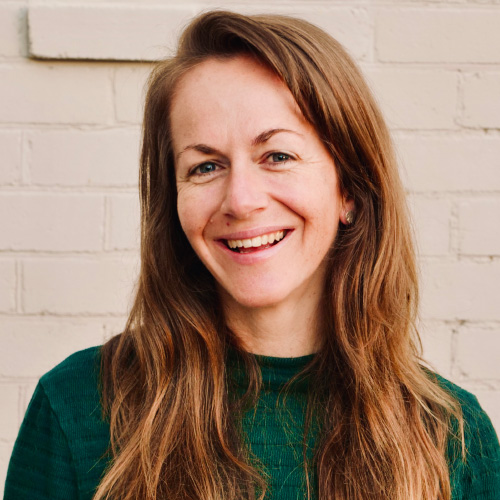 |
Danielle O’Hara (TAS)
|
Danielle O’Hara is an experienced and passionate community engagement practitioner with complimentary facilitation, collaborative practice, strategic planning and program design, research, monitoring and evaluation expertise. She has worked extensively with local and state government and the not-for-profit sector.
Danielle has a Bachelor of Arts (Politics and International Relations), Master of Education (Social Ecology) and a Graduate Certificate, Conflict Management & Resolution. She is also currently completing a PhD in conflict in disaster recovery collaborations.
Danielle has over 10 years’ experience in disaster recovery, including:
- Coordinating the Australian Red Cross Blue Mountains Recovery Program, utilising a community led approach to support recovering communities.
- Supporting Red Cross Australia wide state teams to deliver disaster recovery programs through coordination, planning, training, monitoring and evaluation and implementation advice.
- Designing a national climate change adaptation program aimed at addressing the psychosocial impacts of drought, and building resilience to future events.
- Designing and delivering disaster recovery training, resources and programs.
- Undertaking research related to her PhD, including topics such as interagency collaboration in disaster recovery, community led recovery, recovery and social change and managing conflict in disaster recovery.
- Working as a Regional Recovery Coordinator, Department of Premier & Cabinet, Tasmania.
- In addition to her work, Danielle applies equal enthusiasm to travelling, rock climbing, riding bikes, kayaking, reading, gardening and spending time with good people (including her partner and ridiculous Boxer X Pixie).
Danielle currently lives in sunny Hobart, Tasmania.
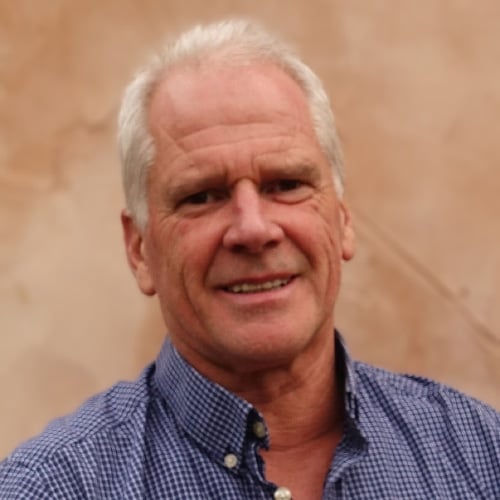 |
Steve Pascoe (VIC)
|
Steve has over 30 years' experience in emergency management. Firstly, as a volunteer in Country Fire Authority (CFA) and Victoria State Emergency Service, then as a community bushfire safety facilitator, an emergency management coordinator with local government, and an emergency management consultant undertaking projects for local, state and federal levels of government. Now retired, Steve is committed to supporting other disaster affected communities, their leaders, and supporting organisations.
In 2009, Steve's community of Strathewen and his own property were devastated by the Black Saturday bushfires where 27 people died in Strathewen and 80 out of 100 homes were destroyed. Steve was one of the community leaders who established the Strathewen Community Renewal Association and has served on many local and district committees, including being a founding member of Strathewen Landcare Group (1992) and has been President for over 16 years.
Steve has initiated, led and facilitated the development of concepts and application of community-based emergency management, working closely with communities of Gembrook, Macclesfield, Kalorama and Monbulk to explore and develop their own emergency management arrangements. He also led the development of a community centred approach to bushfire fuel management for the protection of townships, working with community members, DELWP, Parks Victoria, local government and CFA. This process has been applied to a number of towns in the Yarra Valley and in Mallacoota.
Steve is a founding member of Disaster Recovery Advisors and Mentors Australia and is a Steering Committee member. His mentoring experiences include the development of a community led recovery process for Mallacoota following the 2019/20 bushfires as well as support to recovery practitioners and community leaders in Victoria, South Australia and New South Wales.
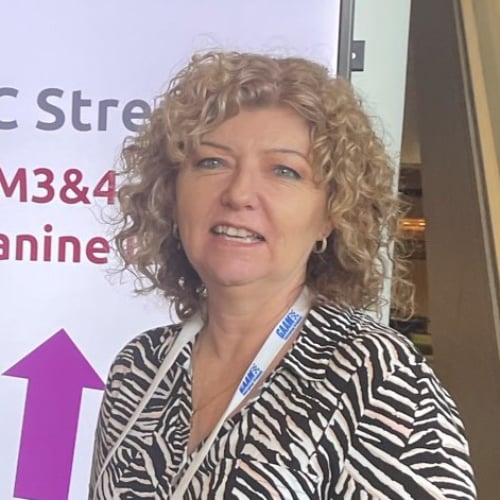 |
Linda Snell (VIC)
|
Linda is a dedicated professional with extensive experience in community development and disaster recovery. She has played crucial roles in the recovery of communities following significant emergencies, including the Hazelwood Mine Fire 2014 and the Yinnar South bushfire as part of the Southeast Complex fires in March 2019.
Linda’s personal experiences during the 2019 Mallacoota and Yinnar South bushfires further motivated her to provide essential support to communities in times of crisis.
In May 2021, Linda was appointed Team Leader for Relief and Recovery in the Yarra Ranges Council Emergency Management Team, a mere four weeks before a catastrophic storm hit in June. It feels like disaster follows Linda at times, but she is grateful for the opportunities to be here and able to help! Currently, Linda leads the Community Recovery Team as their Coordinator, overseeing recovery initiatives in the aftermath of the June 2021 storm.
Linda’s blend of personal insight, professional acumen, and leadership skills equips her to effectively navigate the complex challenges that arise during emergency disaster recovery and community resilience.
Linda’s strengths include relationship and partnership development, project management, facilitation, and systems development.
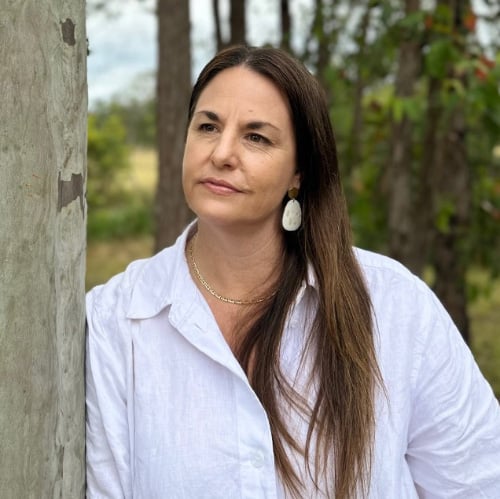 |
Sarah U’Brien (NSW)
|
Sarah U’Brien grew up on a beef farm in Dungog, a small rural farming community in Hunter Valley, NSW. She returned home to Dungog 10 years ago with her young family where she manages the Neighbourhood Centre for her region providing Child and Family support services, Youth services, Centrelink Agency and poverty relief programs.
Previously Sarah has worked in rural and regional communities across NSW developing support and engagement activities and mechanisms for isolated and disadvantaged communities.
Sarah has two young daughters, 11 and 13, and their hobbies and interest keep her pretty busy! Mum's taxi, P&C, soccer club and dance recitals fill Sarah’s hours outside of work.
Sarah is passionate about community lead principles in disaster resilience and works to embed disaster resilience into the everyday operations of her neighbourhood centre and the networks within her community.
In 2015 Sarah’s region was hit by an East Coast Low which resulted in a swift water flooding event through the town. Sarah became the spontaneous leader of the community relief and recovery efforts, including case management, communications, donation coordination, housing assistance, spontaneous volunteer coordination, disaster appeal fund management, coordination of temporary Disaster Relief Hub. Sarah then managed an 18-month government and philanthropic funded recovery program: Project Bounce Forward: involving recovery focused case management and community renewal activities and programs as well as community disaster preparedness program.
Sarah has also worked with her local council to develop a subcommittee as part of the Local Emergency Management Committee that has a focus on resilience and whose membership is made of local services representatives such as preschools, aged care services and community services.
Sarah enjoys reading, horse riding and jogging. Her family love camping, hiking, and spending time at the beach.
Charity donations of $2 or more to Australian Red Cross may be tax deductible in Australia. Site protected by Google Invisible reCAPTCHA. © Australian Red Cross 2024. ABN 50 169 561 394